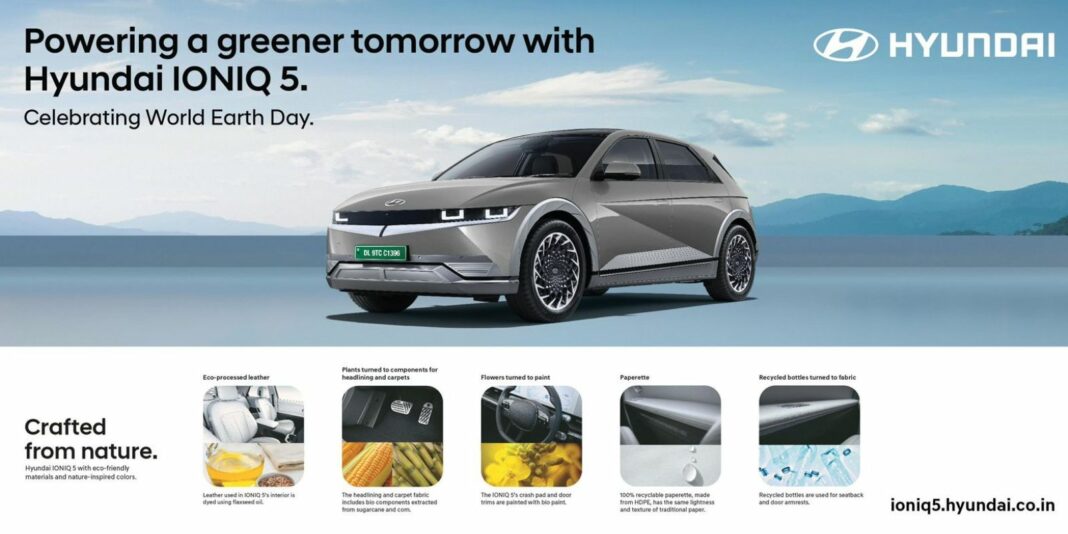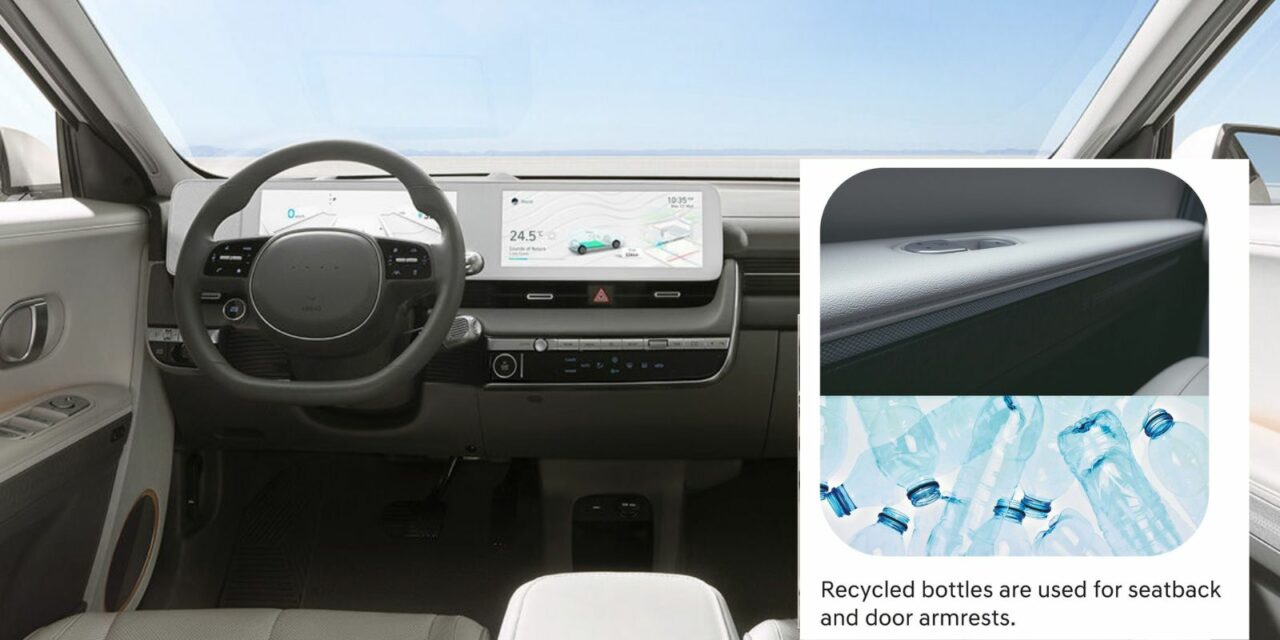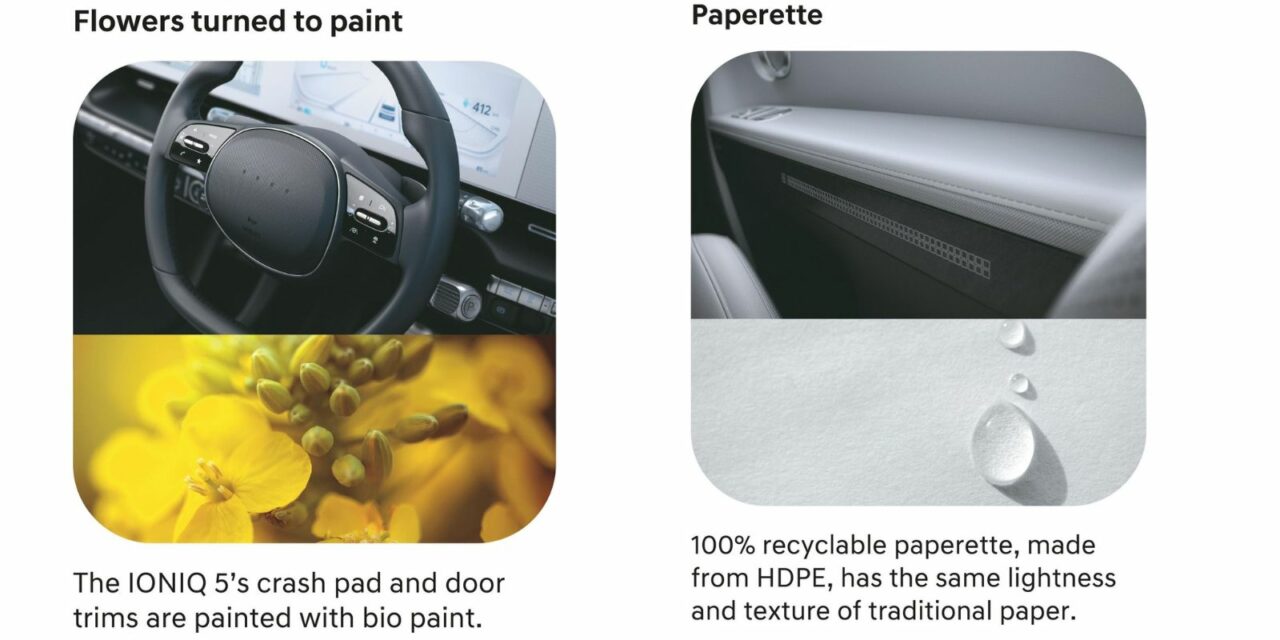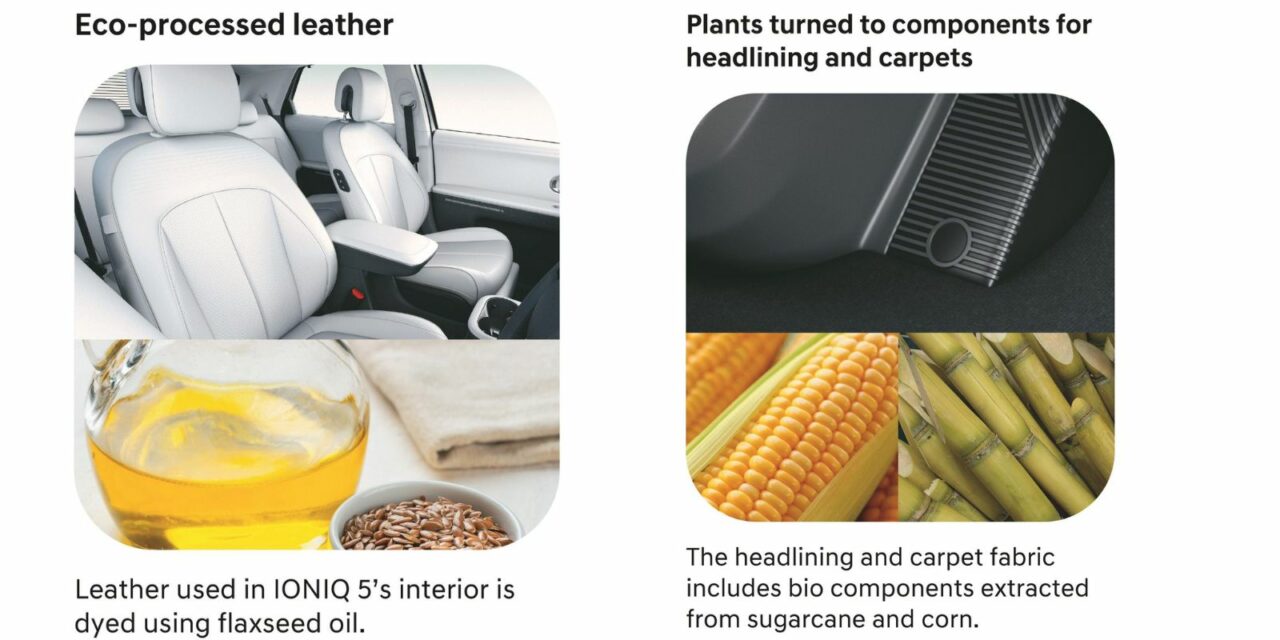
Happy World Earth Day! Here we have explained about Hyundai India’s commitment to sustainability and the top eco-friendly features of the Ioniq 5 EV
The Ioniq 5 epitomises a commitment to sustainability, both in its design and functionality, showcasing how the use of eco-conscious materials and practices can not only enhance the quality of life but also foster a profound connection with the natural world. It urges drivers to value the environment and contemplate the impact of our decisions on the world around us.
By illustrating that environmentally responsible design can harmonize with superior craftsmanship and cutting-edge technology, the EV stands as a testament to the potential of automotive design to promote broader environmental consciousness and inspire a more sustainable tomorrow. Throughout the development of the Ioniq 5, Hyundai responded to the escalating consumer desire for eco-friendly mobility solutions with minimal environmental repercussions.
In response, the designers ensured that the EV integrated eco-friendly and sustainably sourced materials across its design spectrum. It incorporates a range of eco-conscious materials to reduce its carbon footprint and advocate sustainability. These include eco-processed leather, bio-based plastics, and recycled materials that not only lessen environmental impact but also maintain a luxurious appearance and tactile experience.

The seating is upholstered in eco-processed leather, treated with plant oil extractions from flaxseed, offering a sustainable alternative to conventional leather. A distinctive feature of the Ioniq 5 is the seat fabric crafted from recycled PET bottles. For each Ioniq 5, up to 32 plastic bottles are repurposed, cleaned, crushed, and transformed into plastic chips. These chips are then melted and spun into thread, creating an inviting woven upholstery fabric.
Moreover, the seat, headliner, and carpet fabric incorporate bio components derived from sugar cane and corn, while the interior leather is dyed using flaxseed oil instead of animal-derived oils. Noteworthy details like 100% recyclable paperette, made from HDPE with the texture of traditional Korean paper, adorn the door panels. Environmentally friendly twisted wool blend fabric is utilized in the seat coverings of the Ioniq 5.

Various soft furnishings within the cabin feature textiles sourced from sustainable fibres, including bio-components from sugar cane, wool, and poly yarns. Additionally, some materials are woven from fibres produced from recycled PET plastic bottles, underlining Hyundai’s dedication to waste reduction.
The surfaces of the dashboard, switches, steering wheel, and door panels are coated with polyurethane bio paint derived from oils extracted from rape flowers and corn. This choice of paint underscores Hyundai’s commitment to minimizing the environmental impact of vehicle manufacturing while upholding premium finishes.

Each Hyundai Ioniq 5 incorporates up to 32 recycled PET bottles, 294 grams of wool, 200 grams of flaxseed oil, 730 grams of sugar cane and mixed corn, and 0.08 square meters of recyclable paperette. In the future, Ioniq aims to lead in responsible consumption and sustainability, showcasing how new vehicles can be crafted from recycled components of previous Ioniq models.
Hyundai India’s biogas plant and material recovery facility in Gurugram processes wet and dry waste to reduce CO2 emissions and generate electricity. Since October 2022, the facility has recycled 404,000 kg of waste, preventing 1.4 million kg of CO2 from reaching the atmosphere. It can handle 2,000 kg of wet waste and 5,000 kg of dry waste daily from over 2,000 households, producing 200 kilowatts of electricity per day (about 76 megawatts annually). Currently self-sustaining, the plant aims to supply electricity to the local grid in the future. This effort reflects Hyundai’s commitment to sustainability and reducing environmental impact further.
